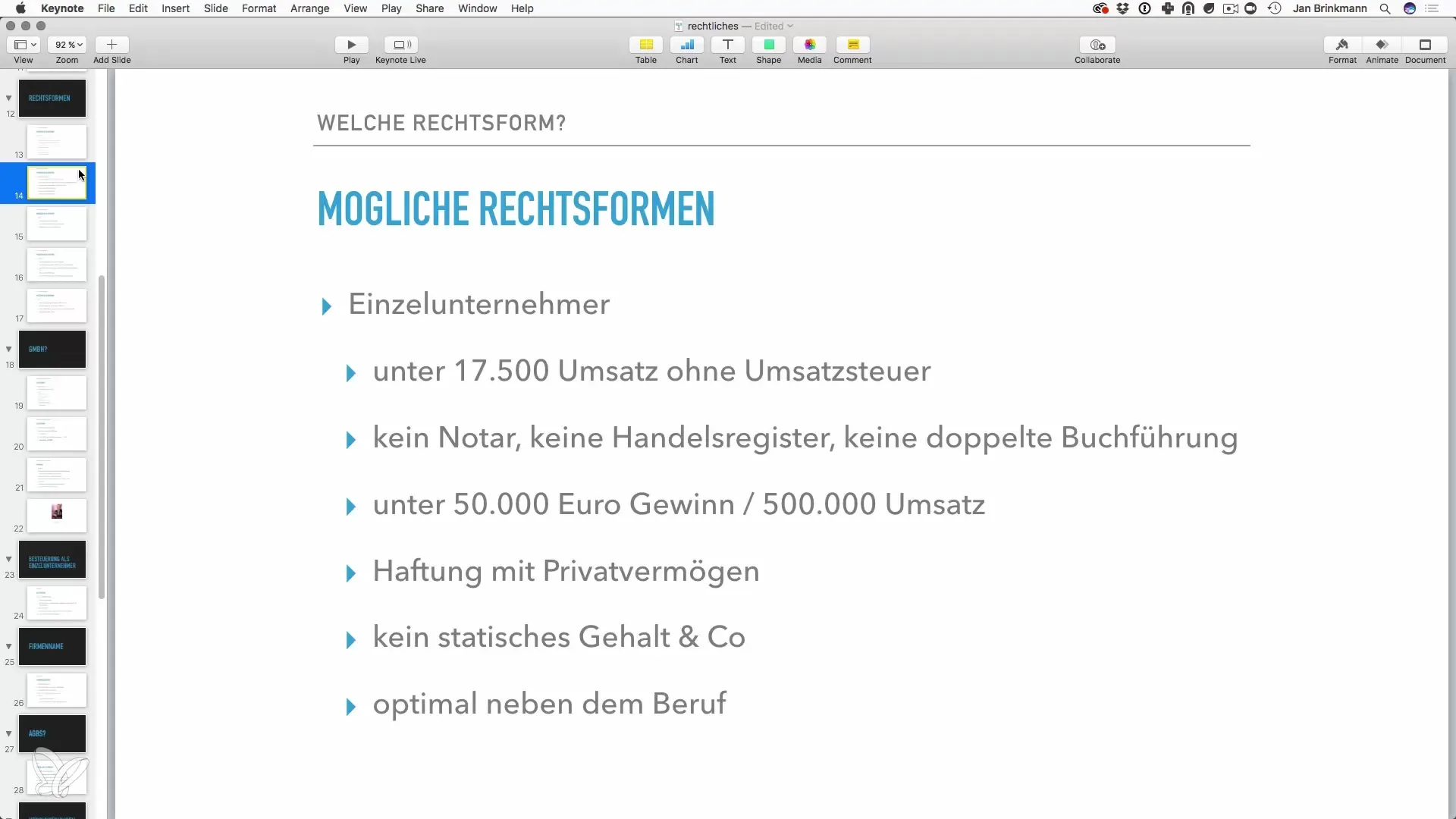The decision on which legal form you choose as a freelancer is an important step on your entrepreneurial journey. This choice not only affects your tax obligations but also influences your liability and the overall flexibility of your business model. There are various options, from sole proprietorship to GmbH. In this guide, you will receive a detailed overview of the most common legal forms in Germany, their advantages and disadvantages, as well as practical tips for implementation.
Main findings
- Self-employed individuals can work as freelancers, but this is not always advisable.
- The sole proprietorship is an uncomplicated entry option for beginners.
- The civil law partnership (GbR) allows for joint enterprise but has specific liability benefits and risks.
- The GmbH offers limited liability but requires minimum capital and is associated with higher administrative costs.
- The entrepreneurial company (UG) has a minimum capital requirement of €1 but is also subject to numerous regulations.
Step-by-step guide
To find the legal form that suits you best, follow this structured guide:
Step 1: Consider whether you want to work as a freelancer
Before you decide, it's important to understand that as a freelancer, only certain services can be offered without registering a business. The legal framework can be particularly complex for creative professions. Consider whether your activity truly meets the freelancer criteria. Also, be aware that there may be restrictions regarding advertising and additional business activities.

Step 2: Consider starting as a sole proprietor
The simplest and often recommended form for beginners is the sole proprietorship. You can register directly with the municipality and quickly receive the necessary documents. A significant advantage is that you do not have to pay VAT up to certain revenue limits. This makes it easier for you to master the initial phase and gain your first orders without having to deal with complicated bookkeeping immediately.

Step 3: Form a civil law partnership (GbR)
If you want to collaborate with another person, you can form a GbR. This is a simple way to work together legally, but it also carries the risk that you may be liable for your partner's mistakes. In a GbR, obligations and risks are shared, which can both facilitate and complicate collaboration.
Step 4: Explore GmbH as a legal form
The GmbH offers you significant liability limitation since only the company assets are liable for liabilities. However, its establishment is more complex and requires a minimum capital of €25,000. Additionally, you must adhere to many legal formalities, which can slow down the start of your business. However, a GmbH can be particularly beneficial if you plan to make larger investments or seek more security for your customers.
Step 5: Consider whether the entrepreneurial company (UG) is right for you
The UG is a minimal version of the GmbH. You only need €1 in share capital, which makes access easier. However, the UG has the same legal and accounting requirements as the GmbH, meaning you can quickly get into trouble if you cannot cover your ongoing costs. Make sure to fully inform yourself about the legal requirements before choosing this form.
Step 6: Make your decision
After weighing all the advantages and disadvantages, you should make a decision about which legal form best suits you and your business. Remember that you do not have to make your decision permanent. With increasing orders, you can always switch to a more suitable legal form.
Summary – Possible legal forms for freelancers: A step-by-step guide
You have a variety of legal forms available when starting as a freelancer. The choice depends on your individual needs and situation. While the sole proprietorship may be the simplest path, a GmbH or UG offers advantages in terms of liability and credibility. Explore all options thoroughly and choose the one that best serves your business goals.
Frequently Asked Questions
How do I register a sole proprietorship?You can easily register a sole proprietorship at your municipality.
What is the advantage of a GbR?The GbR allows you to work jointly and legally protected with one or more persons.
How much minimum capital do I need for a GmbH?The minimum capital for a GmbH is €25,000, of which at least €12,500 must be paid in.
What is the disadvantage of a UG?In the case of a UG, you must cover ongoing costs, otherwise insolvency is imminent.
How do I protect myself while working as a freelancer?Educate yourself on the tax and legal requirements of your specific activity to minimize legal risks.


